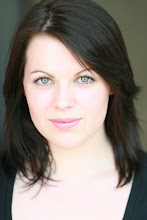I have scoured the web in order to find what the codes of practice/regulations and ethical frameworks actually are within the theatre and audition environments and here is what I found:
There were several websites which I found really useful firstly was http://www.icsom.org/miscellany/auditioncode.html which gave the following interesting section on conduct within an audition…
1. In preparing for and conducting auditions, all participants should be aware of policies and procedures governing those auditions, including this code.2. Although the existence and composition of an audition committee and the nature and extent of its participation in auditioning and hiring is determined locally, musicians' involvement should at least include the initial screening of applicants.
3. Applicants should not be disqualified from auditioning on the basis of information about them obtained from current or previous employers or from other institutions to which they have applied.
4. Auditionees should be given sufficient time and, to the extent possible, adequate private facilities in which to warm up and practice.
5. Parts supplied by the orchestra for auditions should be in good condition, legible, and clearly marked as intended to be played at the audition.
6. There should be no discrimination on the basis of race, sex, age, creed, national origin, religion, or sexual preference; steps ensuring this should exist in all phases of the audition process.
7. There should be reasonable accommodation for the handicapped.
8. Auditionees should be given opportunity and encouragement to comment, anonymously if desired, to the audition committee and management about the audition process.
9. Auditionees should be notified of their status in the audition process immediately upon such determination. Candidates under active consideration after auditions are completed should be so notified and given an estimated time of final decision.
10. Auditionees should be informed prior to auditions of the orchestra's policy regarding reimbursement of auditionees' expenses for additional stay or travel incurred at the request of management.
The second website I found of use was audition criteria for a theatre school http://www.artsed.co.uk/images/uploads/policies/Code_of_Practiceauditions.pdf
All candidates for Acting courses will be offered an audition, provided they meet the following criteria:
All candidates must complete an application form, including a written statement, a photograph, and payment of the required audition fee.
The candidate must meet the age requirements of their course at the start of their first year of study.
Applications must be received by the deadline; this is usually 31st March for a September intake, although this may be later for some courses.
Candidates are invited to disclose any access or learning requirements on their application form, so that any reasonable adjustments to the audition or interview process can be made.
In order to ensure that … can offer as much support as possible, candidates are invited to disclose any long term health issues on their application form so that these may be discussed at the interview stage of the audition.
The School of Acting does not discriminate on grounds of age, background, race, colour, disability, family circumstances, gender, nationality, political beliefs or party membership, religion, sexual orientation, trade union membership or on any other grounds deemed to be irrelevant to participation in the course.
… is committed to providing access to our courses to as wide a range of ethnic and social groups as possible. Auditions take place at … from October to June, and our Outreach teams work with youth groups around the country to encourage talented candidates from under-represented groups to apply for auditions
… offers Foundation Courses for young people interested in preparing for a full-time training course in acting or musical theatre. Successful students are offered a free audition for either the BA (Hons) Musical Theatre or BA (Hons) Acting courses.
Finally http://www.ncdt.co.uk/files/CDET_NCDT_precepts.pdf came up with the following…
PRECEPT ONE: A school undertakes to consider all applications
PRECEPT TWO: A school undertakes to provide candidates with the necessary information
before and at the selection process
PRECEPT THREE: A school undertakes to provide information on the availability of and criteria
for the allocation of public funding
PRECEPT FOUR: A school undertakes to give candidates the opportunity to demonstrate their
potential to fulfil the aims of the course
PRECEPT FIVE: A school undertakes to ensure that the decision making process is fair and
transparent
PRECEPT SIX: A school undertakes to ensure that candidates are informed of the outcome of an audition / interview
